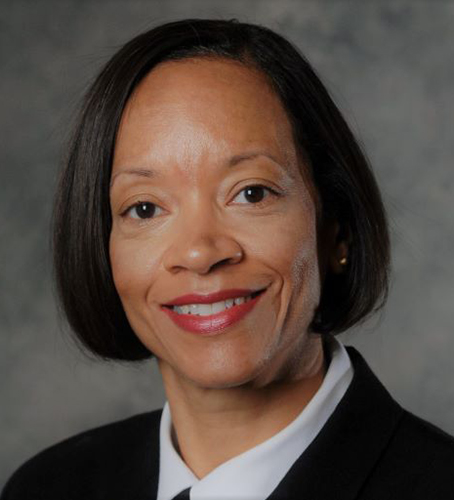Tammie Howard
M.Ed. in Clinical Mental Health Counseling

School Psychology and Counselor Education
- 2023, William & Mary, Master of Education, Clinical Mental Health Counseling
- 1999, University of Phoenix, Master of Science, Nursing
- 1992, George Mason University, Bachelor of Science, Nursing
What kind of educational and professional experiences did you have prior to beginning this degree?
Prior to beginning this degree, I spent 20 years as a nurse in the uniformed services. I retired from service in the Fall of 2018. Most recently, I served as a United States Public Health Service Officer at the Food and Drug Administration, Center for Drug Evaluation and Research, in the Division of Pediatrics and Maternal Health. My position there was Senior Clinical Advisor. I also served as a member of the board of directors of the Jubilee Association of Maryland and the District of Columbia Chapter of the International Dyslexia Association. I continue to serve on both boards currently and I am involved in support and advocacy for those with learning, intellectual and developmental disabilities.
As a student pursuing a master's degree in Clinical Mental Health Counseling, why did you choose this field?
I chose the field of counseling as a natural, personal and professional progression based on a culmination of my life experiences. I grew up with a brother who has intellectual disability, and I became his advocate at a young age. During my professional career, I progressed from staff clinical roles, to leadership roles that involved counseling, advising and/or coaching. I worked with individuals (with and without identified disabilities), families, groups and systems. I found the experiences with my brother and my professional work extremely fulfilling, sparking a deep interest in becoming a professional counselor. I’ve witnessed many positive and successful outcomes and I wanted the opportunity to professionally expand my ability to help others realize their greatest potential to live healthy, fulfilling lives. The holistic approach of counseling allows me to help others directly and to continue growing in my advocacy roles.
What do you hope to be doing after graduation? In 10 or 15 years?
In 10 to 15 years, my vision is to establish a non-profit organization that supports access to neurobehavioral/psychoeducational testing/assessment, mental healthcare and psychoeducational offerings for those who can't afford these services. I believe early detection/identification and access to the earliest interventions are key to improving holistic health outcomes and helping people realize their gifts/potential. It is also my hope to provide effective mental health/advocacy services and to provide a space for future counseling students to have experiences that will hopefully keep access open to everyone.
Why did you choose to apply to William & Mary and specifically to this program? What sets this degree program apart from those offered at other colleges?
I chose William & Mary and the School of Education's Clinical Mental Health Counselor graduate program because I share the values of the institution/graduate program centered around social justice, advocacy, diversity, cultural responsiveness and growth through personal awareness. I also deeply value the holistic collaborative approach to coursework which aligns with the way I desire to learn. There are a few things that set the program apart from others. The program has a stellar, deeply experienced, diverse, compassionate group of educators who demonstrate commitment to providing quality education at all times. Program leadership listens to feedback and takes timely action to mitigate any issues and initiate improvement efforts. There are also a vast amount of learning opportunities offered beyond coursework that enhance student learning. I have not experienced this amount or the diversity in learning opportunities in any other setting. The webinars, skills practices, case presentations and live class discussion opportunities enhance the course work. Finally, the most influential aspect for me is the access to instructors and the feedback provided. I feel like my instructors get to know me and provide student-focused supportive feedback.
What has been the most influential experience you've had so far in your program?
The most influential experience for me so far was the cultural immersion project in the Theory and Practice of Multicultural Counseling course. The project challenged me to truly step outside of my comfort zone to immerse myself in a culture different from my own. It was one of the most amazing learning opportunities I've ever had. I was fortunate enough to work with an individual/community that was extremely welcoming and open to allowing me to share in their experiences. The project was an eye-opening experience that resulted in immensely increasing my self-awareness and accepting/working through my own biases. I believe it was life-changing and will make me a better counselor and human.
Any additional information you think a prospective student should know about the School of Education and its degree programs?
I think it's helpful if students come to the School of Education degree programs with an open mind and willingness to be challenged in ways that might make them uncomfortable. The faculty are extremely supportive and will provide an amazing educational experience if the student is open to it.